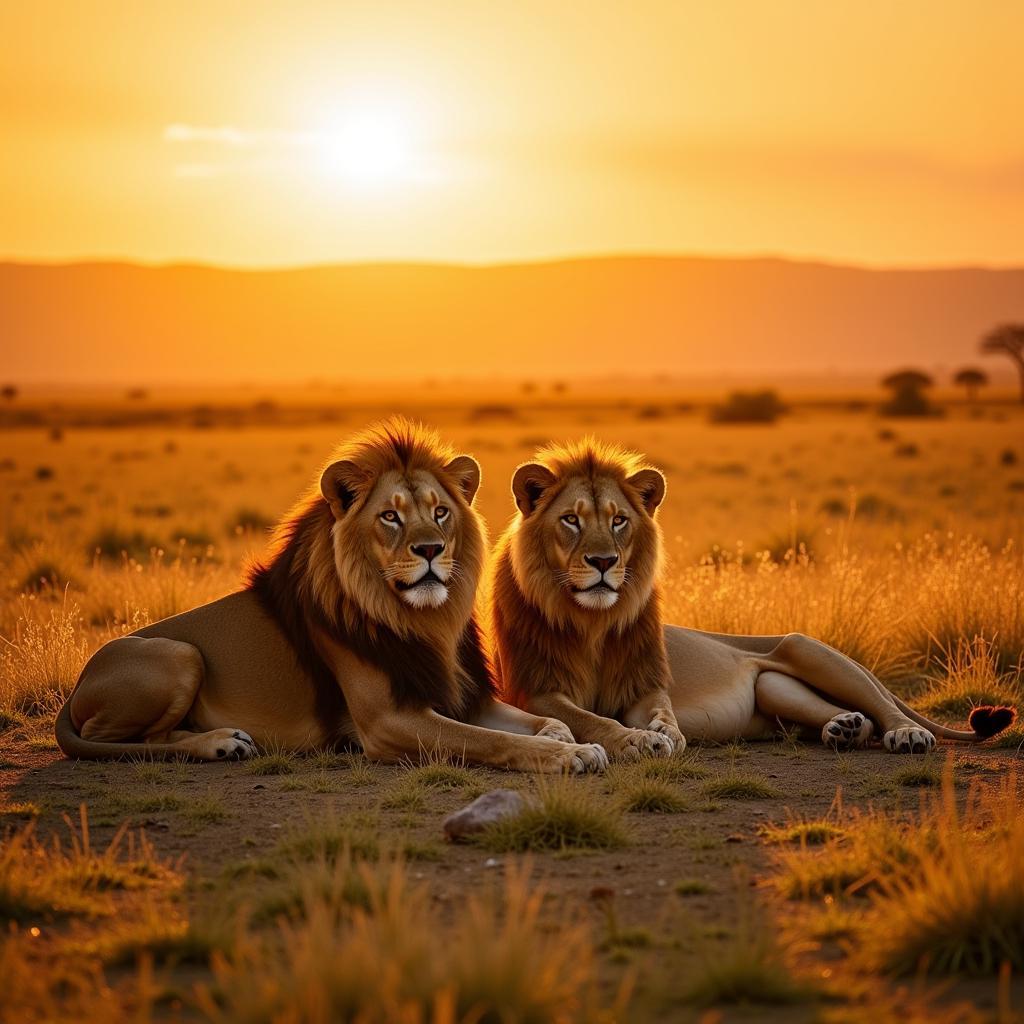African Elephant Endangered Facts: A Deep Dive into Their Plight
The African elephant, a majestic symbol of the African savanna, faces a dire reality: it’s endangered. This article explores the “African Elephant Endangered Facts,” delving into the complex web of threats pushing these gentle giants towards extinction and what we can do to help. We’ll examine the critical factors contributing to their decline and the ongoing efforts to safeguard their future.
The Dire Reality: Why Are African Elephants Endangered?
The primary threats to African elephants are poaching for ivory, habitat loss due to human encroachment and climate change, and human-wildlife conflict. These factors, often intertwined, create a challenging environment for these intelligent and social creatures.
- Poaching: The illegal ivory trade fuels a relentless demand, leading to the senseless slaughter of elephants for their tusks. Though international efforts have been made to curb this trade, it continues to pose a significant threat.
- Habitat Loss: As human populations expand, elephant habitats shrink, leading to competition for resources and increased human-wildlife conflict. This pressure forces elephants into smaller areas, fragmenting their populations and disrupting their social structures.
- Human-Wildlife Conflict: As elephants are forced closer to human settlements, conflicts inevitably arise. Crop raiding by elephants can devastate local communities, leading to retaliatory killings.
Understanding the African Elephant: Key Facts about These Endangered Giants
African elephants, the largest land animals on Earth, play a vital role in their ecosystems. They are keystone species, shaping the landscape through their foraging habits and creating pathways for other animals. Their social structures are complex, with matriarchal herds led by experienced females.
- Lifespan: African elephants can live up to 70 years in the wild.
- Diet: They are herbivores, consuming vast quantities of vegetation daily.
- Social Structure: Elephants live in close-knit family groups, demonstrating strong bonds and complex communication.
Conservation Efforts: Protecting African Elephants for Future Generations
Numerous organizations and individuals are dedicated to protecting African elephants. These efforts range from anti-poaching patrols and community engagement to habitat preservation and scientific research.
- Anti-Poaching Initiatives: Rangers on the ground work tirelessly to protect elephants from poachers, often risking their own lives.
- Community-Based Conservation: Engaging local communities in conservation is crucial. By providing alternative livelihoods and promoting co-existence, we can reduce human-wildlife conflict.
- Habitat Protection: Creating and maintaining protected areas is essential to securing space for elephants to thrive.
african elephant endangered species facts
What Can You Do to Help?
You don’t have to be on the front lines to make a difference. Supporting reputable conservation organizations, spreading awareness about the “african elephant endangered facts,” and making responsible consumer choices can all contribute to the survival of these magnificent creatures. about african elephant in english
How serious is the elephant poaching crisis?
The poaching crisis is extremely serious, driving several elephant populations towards extinction. about african lion
Conclusion: The Future of African Elephants Rests in Our Hands
The “african elephant endangered facts” paint a stark picture, but hope remains. By understanding the challenges and supporting conservation efforts, we can ensure that these magnificent creatures continue to roam the African landscape for generations to come. african jungle animals video Let’s work together to secure a future for the African elephant.
FAQ:
- Why are African elephants considered endangered? Poaching, habitat loss, and human-wildlife conflict.
- What is being done to protect African elephants? Anti-poaching patrols, community-based conservation, and habitat protection.
- How can I help protect African elephants? Support conservation organizations, raise awareness, and make responsible consumer choices.
- What is the biggest threat to African elephants? Poaching for ivory remains the most significant threat.
- How long do African elephants live? Up to 70 years in the wild.
- What do African elephants eat? They are herbivores and consume a variety of vegetation.
- What is the social structure of African elephants? They live in matriarchal herds led by older females.
Dr. Anika Moti, a wildlife biologist specializing in African elephant conservation, emphasizes, “The future of these animals depends on collaborative efforts. We need governments, communities, and individuals to work together.” Another expert, Dr. Jabari Olufemi, a leading researcher in elephant behavior, adds, “Protecting elephants also means protecting the entire ecosystem they inhabit.”
Need help or more information? Please contact us: Phone: +255768904061, Email: kaka.mag@gmail.com or visit us at Mbarali DC Mawindi, Kangaga, Tanzania. Our customer service team is available 24/7. You can also find more articles about African wildlife on our website.

